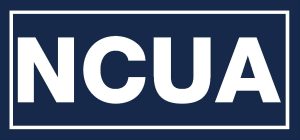
Questions About Your Application
Can I apply for a loan before I find a property to purchase?
Yes, getting pre-approved before you start shopping for a home may be the best thing you can do! Most realtors will not show you a house without evidence that you have been pre-approved. You can quickly and easily apply online or call one of our experienced Mortgage Officers directly to get your pre-qualification.
Once you find your perfect home, simply contact your Mortgage Officer and they can help you with the next steps.
Will I be charged any fees if I authorize my credit information to be accessed?
TEG does not charge any upfront fees to get pre-qualified.
Can I really borrow funds to use towards my down payment?
Yes, you can borrow funds to use as your down payment! However, any loans that you take out must be secured by an asset that you own, and you will be required to provide documentation to show the value and ownership of the asset.
The payment of any loan that you may take out, with the exception of a loan secured by your financial asset (ex: 401k or Retirement Account) will need to be taken into consideration when qualifying you for the mortgage.
Funds from a personal loan or cash advance are not an acceptable source of funds for downpayment or closing costs.
How do you decide what you need from me to process my loan?
We take full advantage of an automated underwriting system that allows us to request as little information as possible to verify the data you provided during your loan application. Gone are the days when it was necessary to verify every piece of data collected during the application. The automated underwriting system compares your financial situation with statistical data from millions of other homeowners and uses that comparison to determine the level of verification needed. In many cases, a single W-2 or pay stub can be used to verify your income or a single bank statement can be used to verify the assets needed to close your loan.
I’m self-employed. How will you verify my income?
The income of self-employed borrowers is verified by obtaining copies of personal and business federal tax returns. Depending on your loan program and how long you have been self-employed, tax returns for the most recent year(s) will be needed.
We’ll review your tax returns to determine the net income from self-employment to determine qualification.
Will my overtime, commission, or bonus income be considered when evaluating my application?
In order for bonus, overtime, or commission income to be considered, you must have a history of receiving it and it must be likely to continue. We need to obtain copies of year-end pay stubs for the previous two years and a recent pay stub to verify this type of income. If you don’t have access to your year-end pay stubs, we will verify this directly with your employer. We’ll review to determine the consistency and stability of the income to determine what can be used as qualifying income.
If you haven’t been receiving bonus, overtime, or commission income for at least two years, it probably can’t be used for qualification but may be considered as a compensating factor.
I am retired and my income is from pension or social security. What will I need to provide?
We will ask for verification of receipt, including copies of your bank statements, most recent pension award statement, 1099-R or similar to verify. Sometimes it will also be necessary to verify that this income will continue for at least three years since some pension or retirement plans do not provide income for life. This can usually be verified with a copy of your award letter. If you don’t have an award letter, we can contact the source of this income directly for verification.
If any of your retirement is tax free, we will need a copy of your tax return so that we can”gross up” that income to account for the fact that you do not have to pay taxes on it.
If I have income that’s not reported on my tax return, can it be considered?
Generally, only income that is reported on your tax return can be considered when applying for a mortgage. Unless, of course, the income is legally tax-free and isn’t required to be reported.
If you are self-employed, you may be able to qualify for a mortgage using business or personal bank statements for qualification. These specialty programs require larger down payments and offer interest rates that are higher than conventional mortgage rates. Speak to your Mortgage Officer to see if this option is appropriate for your situation.
How will rental income be verified?
I have income from dividends and/or interest. What documents will I need to provide?
Generally, two years personal tax returns are required to verify the amount of your dividend and/or interest income so that an average of the amounts you receive can be calculated. In addition, we will need to verify your ownership of the assets that generate the income using copies of statements from your financial institution, brokerage statements, stock certificates or Promissory Notes.
Typically, income from dividends and/or interest must be expected to continue for at least three years to be considered as qualifying income.
Do I have to provide information about my child support, alimony, or separate maintenance income?
Will my second job income be considered?
I’ve had a few employers in the last few years. Will that affect my ability to get a new mortgage?
If you’re paid on a commission basis, a recent job change may be an issue since we’ll have a difficult time of predicting your earnings without a history with your new employer.
If you are contemplating making any changes to your employment while your mortgage is in process, please discuss this with you Mortgage Officer prior to changing employers.
I was in school before obtaining my current job. How do I complete the application?
If my property’s appraised value is more than the purchase price can I use the difference towards my down payment?
It’s still a great benefit for your financial situation if you are able to purchase a home for less than the appraised value.
I’m getting a gift from someone else. Is this an acceptable source of my down payment?
Prior to closing, we’ll verify that the gift funds have been transferred to you by obtaining a copy of your bank receipt or deposit slip to verify that you have deposited the gift funds into your account.
I am selling my current home to purchase this home. What type of documentation will be required?
I am relocating because I have accepted a new job that I haven’t started yet. How should I complete the application?
If your employment is with a new employer, complete the application as if this were your current employer and indicate that you have been there for one month. The information about the employment you’ll be leaving should be entered as a previous employer. We’ll sort out the details after you submit your loan for approval.
I’ve co-signed a loan for another person. Should I include that debt here?
I have student loans that aren’t in repayment yet. Should I show them as installment debts?
How will a past bankruptcy or foreclosure affect my ability to obtain a new mortgage?
What, exactly, is an installment debt?
Questions About Your Closing and Beyond
What happens at the loan closing?
The closing will take place at the office of a title company or attorney in your area who will act as our agent. If you are purchasing a new home, the seller may also be at the closing to transfer ownership to you.
You will be receiving a preliminary copy of your Closing Disclosure (CD) at least 3 business days before consummation which sums up the terms of your loan and what you pay at closing. If you have any questions regarding these documents, you may speak with your TEG Closer, your Mortgage Officer or your attorney.
During the closing you will be reviewing and signing your loan documents.
The most important documents you will be signing at the closing include:
Note: This is the document you sign to agree to repay your mortgage. The note includes the details of your loan including the amount borrowed, the interest rate, the payment amount, the term and any penalties that may be assessed.
Mortgage / Deed of Trust: This document gives the lender a security interest in the property being used as collateral for the loan. This document gives the lender the right to foreclose if you fail to make the payments or violate the loan contract. In some states, the document is called a Deed of Trust instead of a Mortgage.
If you are refinancing your primary residence, Federal Law requires that you have three (3) business days to cancel or rescind the mortgage if you change your mind for any reason. This means that the loan funds won’t be disbursed until the fourth business day.
Will I need to have an attorney represent me at closing?
In New York, it is typical for borrowers who are purchasing a house to be represented by an attorney, though it is not required. In other areas, attorneys are not as common at a real estate closing though you always have the option to hire an attorney to represent your interests in the transaction if you prefer.
Can I get advanced copies of the documents I will be signing at closing?
At least three days prior to closing you will receive the initial closing disclosure which summarizes the details and closing costs associated with your transaction.
If you would like to receive a full copy of the closing documents to review in advance, please request them from your attorney, settlement agent or TEG Closer.
Who will be at the closing?
The settlement agent will represent TEG and will attend the closing. In addition, a title representative will be present.
If this is for a purchase transaction, the seller(s) and seller’s attorney, along with the realtors, may attend.
I won’t be able to attend the closing. What other options are there?
If I apply, where will the closing take place?
Can I make my monthly payments with an automated debit from my checking account?
Questions About Your Credit Score
What is a credit score and how will my credit score affect my application?
A credit score is one of the pieces of information that we’ll use to evaluate your application.
Credit scores are based on information reported each month by your creditors to the credit bureaus. Credit scoring algorithms are used to compare your credit history with millions of other consumers. There are different models used depending on the type of loan applied for. This is why the credit score your mortgage lender uses may be different than the credit score obtained when applying for an auto loan.
Some of the things that affect your credit score includes your payment history, the length of the time you have had outstanding credit, the types of credit you use, the number of inquiries that have been made about your credit history in the recent past past and your credit utilization. Credit utilization considers the percent of available credit lines used in reference to the credit limit. Payments received 30 days or more after the due date may be reported as late to the credit bureaus.
Credit scores used for mortgage loan decisions range from approximately 300 to 900. Generally, the higher your credit score, the lower the risk that your payments won’t be paid as agreed.
Using credit scores allows us to quickly and objectively evaluate your credit history when reviewing your loan application. However, there are many other factors when making a loan decision and we never evaluate an application without looking at the total financial picture of a member.
Will the inquiry about my credit affect my credit score?
An abundance of credit inquiries can sometimes affect your credit scores since it may indicate that your use of credit is increasing.
The data used to calculate your credit score doesn’t include any mortgage or auto loan credit inquiries that are made within the 30 days prior to the score being calculated. In addition, all mortgage inquiries made in any 14-day period are always considered one inquiry. Don’t limit your mortgage shopping for fear of the effect on your credit score.
What if my credit is less than perfect?
Questions About Loan Programs, Rates and Fees
How are interest rates determined?
Interest rates fluctuate based on a variety of factors, including inflation, the pace of economic growth, and Federal Reserve policy. Over time, inflation has the largest influence on the level of interest rates. A modest rate of inflation will almost always lead to low interest rates, while concerns about rising inflation normally cause interest rates to increase. Our nation’s central bank, the Federal Reserve, implements policies designed to keep inflation and interest rates relatively low and stable.
What is an Adjustable-Rate
An Adjustable-Rate Mortgage, or an “ARM” as they are commonly called, is a loan type that offers a lower initial interest rate than most fixed rate loans. The tradeoff is that the interest rate can change periodically, usually in relation to an index, and the monthly payment will go up or down accordingly. Against the advantage of the lower payment at the beginning of the loan, you should weigh the risk that an increase in interest rates would lead to higher monthly payments in the future. It’s a trade-off. You get a lower rate with an ARM in exchange for assuming more risk. For many people in a variety of situations, an ARM is the right mortgage choice, particularly if your income is likely to increase in the future or if you only plan on being in the home for three to five years.
Here’s some detailed information explaining how ARM’s work:
Adjustment Period
With most ARMs, the interest rate and monthly payment are fixed for an initial time period such as one year, three years, five years, or seven years. After the initial fixed period, the interest rate can change every year. For example, one of our most popular adjustable rate mortgages is a five-year ARM. The interest rate will not change for the first five years (the initial adjustment period) but can change every year after the first five years.
Index
Our ARM interest rate changes are tied to changes in an index rate. Using an index to determine future rate adjustments provides you with assurance that rate adjustments will be based on actual market conditions at the time of the adjustment. The current value of most indices is published weekly in the Wall Street Journal. If the index rate moves up so does your mortgage interest rate, and you will probably have to make a higher monthly payment. On the other hand, if the index rate goes down your monthly payment may decrease.
Margin
To determine the interest rate on an ARM, we’ll add a pre-disclosed amount to the index called the “margin.” If you’re still shopping, comparing one lender’s margin to another’s can be more important than comparing the initial interest rate, since it will be used to calculate the interest rate you will pay in the future.
Interest-Rate Caps
An interest-rate cap places a limit on the amount your interest rate can increase or decrease.
There are two types of caps:
1. Periodic or adjustment caps, which limit the interest rate increase or decrease from one adjustment period to the next.
2. Overall or lifetime caps, which limit the interest rate increase over the life of the loan.
As you can imagine, interest rate caps are very important since no one knows what can happen in the future. All of the ARMs we offer have both adjustment and lifetime caps. Please see each product description for full details.
Negative Amortization
“Negative Amortization” occurs when your monthly payment changes to an amount less than the amount required to pay interest due. If a loan has negative amortization, you might end up owing more than you originally borrowed. None of the ARMs we offer allow for negative amortization.
Prepayment Penalties
Some lenders may require you to pay special fees or penalties if you pay off the ARM early. We never charge a penalty for prepayment. Contact a Loan Officer Selecting a mortgage may be the most important financial decision you will make and you are entitled to all the information you need to make the right decision. Don’t hesitate to contact a Loan Officer if you have questions about the features of our adjustable rate mortgages.
Should I pay discount points in exchange for a lower interest rate?
Is comparing APRs the best way to decide which lender has the lowest rates and fees?
How do I know if it’s best to lock in my interest rate or to let it float?
How much money will I save by choosing a 15-year loan rather than a 30-year loan?
Who Should Consider a 15-Year Mortgage?
Advantages and Disadvantages of a 15-Year Mortgage
Compare Them Yourself
Are there any prepayment penalties charged for these loan programs?
What is your Rate Lock Policy?
The interest rate market is subject to movements without advance notice. Locking in a rate protects you from the time that your lock is confirmed to the day that your lock period expires. A lock is an agreement by the borrower and the lender and specifies the number of days for which a loan’s interest rate and discount points are guaranteed. Should interest rates rise during that period, we are obligated to honor the committed rate. Should interest rates fall during that period, the borrower must honor the lock. Your loan officer will advise you when your loan is eligible to lock. We do not charge a fee for locking in your interest rate up to 60 days. Once we accept your lock, your loan is committed into a secondary market transaction. Therefore, we are not able to renegotiate lock commitments. In additional to traditional locks, TEG offers long term lock options for up to 9 months on conventional loans with a free float down option within 60 days of expiration. A lock deposit equal to .5% of your loan amount is required, which will be refunded at closing. Not all loan programs are eligible for long term locks. Contact your Mortgage Loan Officer for details.
Tell me more about closing fees and how they are determined.
A home loan often involves many fees, such as the appraisal fee, title charges, closing fees, and state or local taxes. These fees vary from state to state and also from lender to lender. Any lender or broker should be able to give you an estimate of their fees, but it is more difficult to tell which lenders have done their homework and are providing a complete and accurate estimate. We take quotes very seriously. We’ve completed the research necessary to make sure that our fee quotes are accurate to the city level – and that is no easy task!
To assist you in evaluating our fees, we’ve grouped them as follows: Third Party Fees Fees that we consider third party fees include the appraisal fee, the credit report fee, the settlement or closing fee, the survey fee, tax service fees, title insurance fees, flood certification fees, and courier/mailing fees.
Third party fees
Are fees that we’ll collect and pass on to the person who actually performed the service. For example, an appraiser is paid the appraisal fee, a credit bureau is paid the credit report fee, and a title company or an attorney is paid the title insurance fees. Typically, you’ll see some minor variances in third party fees from lender to lender since a lender may have negotiated a special charge from a provider they use often or chooses a provider that offers nationwide coverage at a flat rate. You may also see that some lenders absorb minor third party fees such as the flood certification fee, the tax service fee, or courier/mailing fees.
Taxes and other unavoidables
Fees that we consider to be taxes and other unavoidables include: State/Local Taxes and recording fees. These fees will most likely have to be paid regardless of the lender you choose. If some lenders don’t quote you fees that include taxes and other unavoidable fees, don’t assume that you won’t have to pay it. It probably means that the lender who doesn’t tell you about the fee hasn’t done the research necessary to provide accurate closing costs.
Lender Fees
Fees such as discount points, document preparation fees, and loan processing fees are retained by the lender and are used to provide you with the lowest rates possible. This is the category of fees that you should compare very closely from lender to lender before making a decision.
Required Advances
You may be asked to prepay some items at closing that will actually be due in the future. These fees are sometimes referred to as prepaid items. One of the more common required advances is called “per diem interest” or “interest due at closing.” All of our mortgages have payment due dates of the 1st of the month. If your loan is closed on any day other than the first of the month, you’ll pay interest, from the date of closing through the end of the month, at closing.
For example, if the loan is closed on June 15, we’ll collect interest from June 15 through June 30 at closing. This also means that you won’t make your first mortgage payment until August 1. This type of charge should not vary from lender to lender, and does not need to be considered when comparing lenders. All lenders will charge you interest beginning on the day the loan funds are disbursed. It is simply a matter of when it will be collected. If an escrow or impound account will be established, you will make an initial deposit into the escrow account at closing so that sufficient funds are available to pay the bills when they become due. If your loan requires mortgage insurance, up to two months of the mortgage insurance will be collected at closing. Whether or not you must purchase mortgage insurance depends on the size of the down payment you make. If your loan is a purchase, you’ll also need to pay for your first year’s homeowner’s insurance premium prior to closing. We consider this to be a required advance.
What is title insurance and why do I need it?
If you’ve ever purchased a home before, you may already be familiar with the benefits and terms of title insurance. But if this is your first home loan or you are refinancing, you may be wondering why you need another insurance policy. The answer is simple: The purchase of a home is most likely one of the most expensive and important purchases you will ever make. You, and especially your mortgage lender, want to make sure the property is indeed yours: That no individual or government entity has any right, lien, claim, or encumbrance on your property. The function of a title insurance company is to make sure your rights and interests to the property are clear, that transfer of title takes place efficiently and correctly, and that your interests as a homebuyer are fully protected. Title insurance companies provide services to buyers, sellers, real estate developers, builders, mortgage lenders, and others who have an interest in real estate transfer.
Title companies typically issue two types of title policies:
1) Owner’s Policy. This policy covers you, the homebuyer.
2) Lender’s Policy. This policy covers the lending institution over the life of the loan.
Both types of policies are issued at the time of closing for a one-time premium, if the loan is a purchase. If you are refinancing your home, you probably already have an owner’s policy that was issued when you purchased the property, so we’ll only require that a lender’s policy be issued. Before issuing a policy, the title company performs an in-depth search of the public records to determine if anyone other than you has an interest in the property. The search may be performed by title company personnel using either public records or, more likely, the information contained in the company’s own title plant. After a thorough examination of the records, any title problems are usually found and can be cleared up prior to your purchase of the property. Once a title policy is issued, if any claim covered under your policy is ever filed against your property, the title company will pay the legal fees involved in the defense of your rights. They are also responsible to cover losses arising from a valid claim. This protection remains in effect as long as you or your heirs own the property. The fact that title companies try to eliminate risks before they develop makes title insurance significantly different from other types of insurance. Most forms of insurance assume risks by providing financial protection through a pooling of risks for losses arising from an unforeseen future event, say a fire, accident or theft.
On the other hand, the purpose of title insurance is to eliminate risks and prevent losses caused by defects in title that may have happened in the past. This risk elimination has benefits to both the homebuyer and the title company. It minimizes the chances that adverse claims might be raised, thereby reducing the number of claims that have to be defended or satisfied. This keeps costs down for the title company and the premiums low for the homebuyer. Buying a home is a big step emotionally and financially. With title insurance you are assured that any valid claim against your property will be borne by the title company, and that the odds of a claim being filed are slim indeed.
What is mortgage insurance and when is it required?
How do I lock my rate?
What is the maximum percentage of my home’s value that I can borrow?
Questions About Mortgages
How do I know which home loan is right for me?
This is what our personal service is all about… helping you make the best loan choice for your specific needs. Our mortgage officers are experienced professionals with knowledge covering a wide range of home loan programs. Each consultant is able to explain the advantages of appropriate loan programs, considering the specific financial goals of the member. Generally picking the right home loan is about selecting the length of time the applicant believes they will stay in the home, coupled with their ability to support larger payments in years to come.
What is equity?
Equity is the difference between the amount for which a home can be sold and the amount still owed on the mortgage. This important difference represents the homeowner’s financial interest in the property. A homeowner can borrow against the equity in his/her home with a home loan and use the funds for virtually any purpose… from debt consolidation to major purchases to home improvements. Because the loan is mortgage-based, interest on the home loan may also be tax deductible. Consult your tax advisor to see whether this advantage applies to you.
What is the difference between a fixed rate and an adjustable rate mortgage?
Does it make sense to refinance if I recently obtained a home loan?
How much can I afford in mortgage payments?
What is an APR?
How do I get started?
Questions About Your Property
Are there any special requirements for condominiums?
Since the value and marketability of condominium properties is dependent on items that don’t apply to single-family homes, there are some additional steps that must be taken to determine if condominiums meet our guidelines. One of the most important factors is determining if the project that the condominium is located in is complete. In many cases, it will be necessary for the project, or at least the phase that your unit is located in, to be complete before we can provide financing. The main reason for this is, until the project is complete, we can’t be certain that the remaining units will be of the same quality as the existing units. This could affect the marketability of your home. In addition, we’ll consider the ratio of non-owner occupied units to owner-occupied units. This could also affect future marketability since many people would prefer to live in a project that is occupied by owners rather than renters. We’ll also carefully review the appraisal to ensure that it includes comparable sales of properties within the project, as well as some from outside the project. Our experience has found that using comparable sales from both the same project as well as other projects gives us a better idea of the condominium project’s marketability. Depending on the percentage of the property’s value you’d like to finance, other items may also need to be reviewed.
I’ve heard that some lenders require flood insurance on properties. Will you?
Federal Law requires all lenders to investigate whether or not each home they finance is in a special flood hazard area as defined by FEMA, the Federal Emergency Management Agency. The law can’t stop floods. Floods happen anytime, anywhere. But the Flood Disaster Protection Act of 1973 and the National Flood Insurance Reform Act of 1994 help to ensure that you will be protected from financial losses caused by flooding. We use a third party company who specializes in the reviewing of flood maps prepared by FEMA to determine if your home is located in a flood area. If it is, then flood insurance coverage will be required, since standard homeowner’s insurance doesn’t protect you against damages from flooding.
Does TEG Federal Credit Union provide financing for manufactured homes?
We define manufactured housing as housing units that are factory built with a steel undercarriage that remains as a structural component and limits the structure to a single story. These types of manufactured homes are sometimes known as mobile homes. We do not consider other factory-built housing (not built on a permanent chassis), such as modular, prefabricated, panelized, or sectional housing, to be manufactured housing. If your home is one of these types, please complete the application indicating that your home is a single family home. In order to qualify for our loan programs a manufactured home must meet the following requirements:
-
- A manufactured home is any dwelling built on a permanent chassis and attached to a permanent foundation system. Be a one-family dwelling that is legally classified as real property.
-
- The towing hitch, wheels, and axles must have been removed and the home must be permanently attached to a foundation system that meets state and local codes as well as the manufacturer’s requirements.
-
- Foundation system must be appropriate for the soil conditions for the site and meet local and state codes. The land on which the manufactured home is situated must be owned by you. We do not provide financing for manufactured homes located on rented or leased land.
-
- Must have been built in compliance with the Federal Manufactured Home Construction and Safety Standards that were established June 15, 1976. Generally, compliance with these standards will be evidenced by the presence of a HUD Data Plate that is affixed near the main electrical panel of the home or in another readily accessible and visible location. Must be at least double-width, 24 feet wide, and have a minimum 600 square feet of gross living area. Must be acceptable to typical purchasers in the market area.
Questions About TEG Federal Credit Union
Why choose TEG Federal Credit Union for my Home Loan?
TEG Federal Credit Union has a wide range of loan programs that are competitively priced. Using the latest technology, we have made the borrowing process simple and convenient. As a direct lender, we can offer you a competitive rate and eliminate fees associated with a loan arranged through a broker. Our commitment is to provide top quality service.
Are we right for you?
Whether you’re purchasing or refinancing, we’re certain you’ll find our service amazing!
If you’ll be purchasing but haven’t found the perfect home yet, complete our application and we’ll issue an approval for a mortgage loan now with no obligation!
How much help should I expect from my Mortgage Officer?
Questions About Our Website
Is this website secure?
Security is a top priority for TEG Federal Credit Union. We ensure that all personal and confidential information is transmitted and stored through an encrypted process.
How is my privacy protected?
TEG Federal Credit Union may share your data as noted in our Privacy Statement. Please see our Privacy Statement for more details.
What if I have other questions?
Homebuying Questions?
Get answers in our Mortgage Learning Center.
Find helpful articles, tools, and other great resources to help you with your homebuying journey.

We Do Business in Accordance with Federal Fair Lending Laws – Fair Housing Poster.
Home Mortgage Disclosure Act Notice – The HMDA data about our residential mortgage lending are available for review. The data show: Geographic distribution of loans and applications Ethnicity, race, sex, and income of applicants and borrowers Information about loan approvals and denials. HMDA data for many other financial institutions are also available online. For more information, visit the Consumer Financial Protection Bureau’s website.









